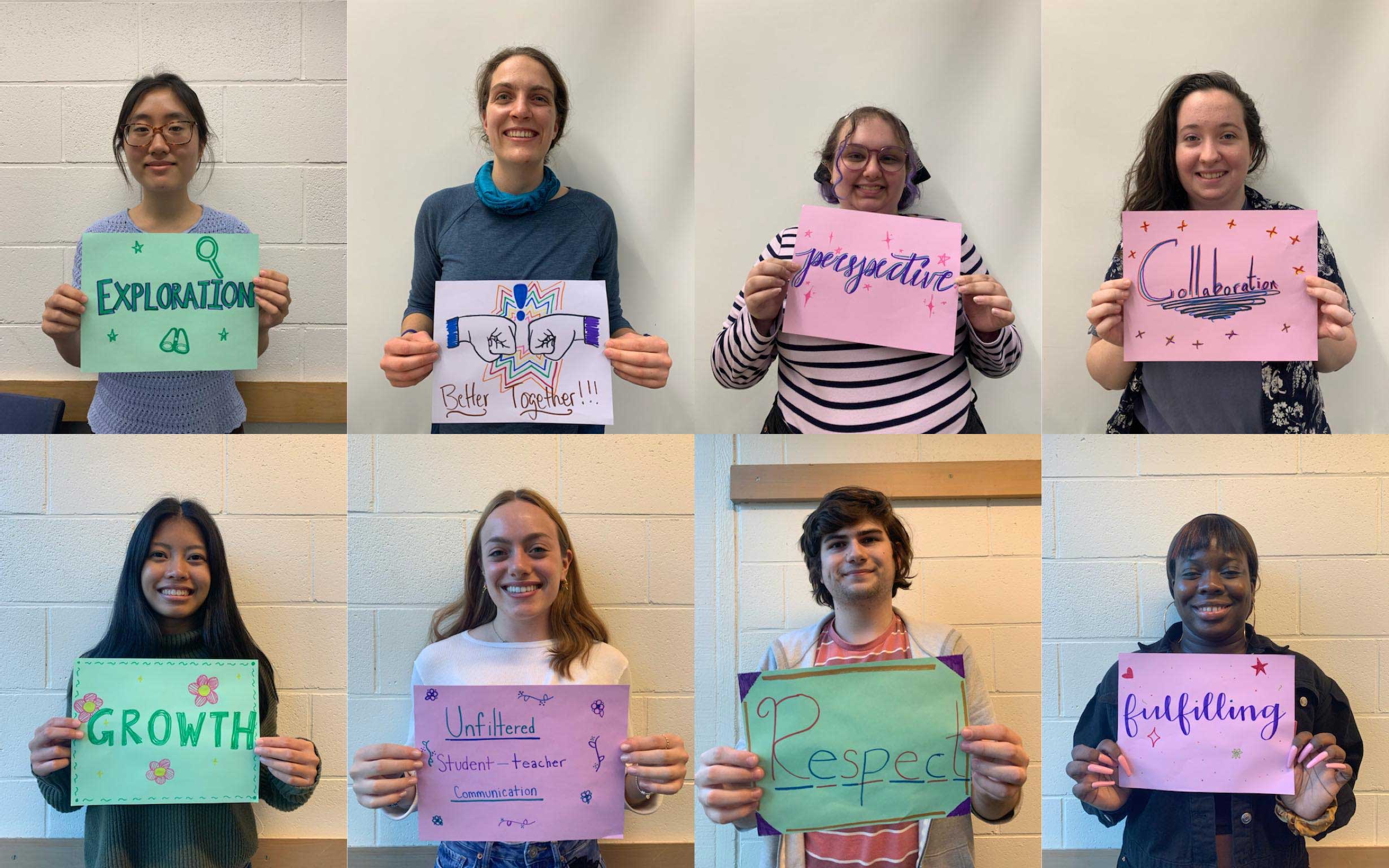Inclusive Pedagogies
The Inclusive Pedagogy and Curriculum working group envisions Vassar as a space where pedagogy can be holistically reimagined and where students might play a greater role in developing inclusive pedagogies with faculty partners.
Get involved
Project STEPP
We launched the Student-Teacher Engaged Pedagogical Partnership (STEPP), in which student-faculty pairs reflect and work on practices of inclusion in the classroom.

“I appreciate the ability to build relationships with faculty and be a bridge between the students in the classroom and the professor.”
—Nia Smith ’22
STEPP (Student Teacher Engaged Pedagogical Partnership) is a pedagogical partnership program at Vassar College that centers intentional dialogue about teaching practices in a semester-long faculty-student collaboration. It focuses on building student-faculty relationships and empowering student voices while offering faculty an opportunity to receive constructive feedback and work collaboratively with a student partner to address teaching goals.
Traditionally, in STEPP, a student partner attends a class weekly to observe their faculty partner’s teaching practices. During a weekly meeting with the faculty partner, the student partner shares observations and reflections from class and both partners work together to adapt classroom pedagogical practices. The student partner receives independent research credit for their work in one of their faculty partner’s academic disciplines. As the student partner is not enrolled in the faculty partner’s class, they are able to provide an open and empathetic perspective on the class. Student partners attend weekly meetings with the STEPP facilitator to share concerns and learn from one another’s experiences.
Publications
Bala, N. (2022). Launching a Pedagogical Partnership Program at Emmanuel College. Teaching and Learning Together in Higher Education, 35.
Bala, N. (2021). A STEPP into uncertainty: Pursuing passions to embrace pedagogical risks. Teaching and Learning Together in Higher Education, 33.
Bala, N. (2021). Crossing disciplinary and institutional boundaries. In A. Cook-Sather & S. Slates (Eds.,) Diversifying students-as-partners participants and practices (p. 156). International Journal for Students as Partners, 5 (1).
Bala, N., & Kahn, J. (2021). Exploring belonging in pedagogical partnership programs. International Journal for Students As Partners , 5 (2), 134–140.
Cook-Sather, A., & Bala, N. (2020). Naming and Navigating Troubling Transitions: Pedagogical Partnership during the Pandemic. Teaching and Learning Together in Higher Education, 30.
Rueda, E. (forthcoming). Choosing Pedagogical Partnerships Over Pedagogical Solitude:
Embracing the Inherently Social Nature of Teaching and Learning. Teaching and Learning Together in Higher Education.
Featured Articles
Cook-Sather, A. (2021). Responding to Twin Pandemics: Reconceptualizing Assessment Practices for Equity and Justice. Research & Practice in Assessment, 16 (2).
Hertz, L. (2020). Faculty-Student Partnership Takes a STEPP Towards Superior Teaching. Vassar Stories.